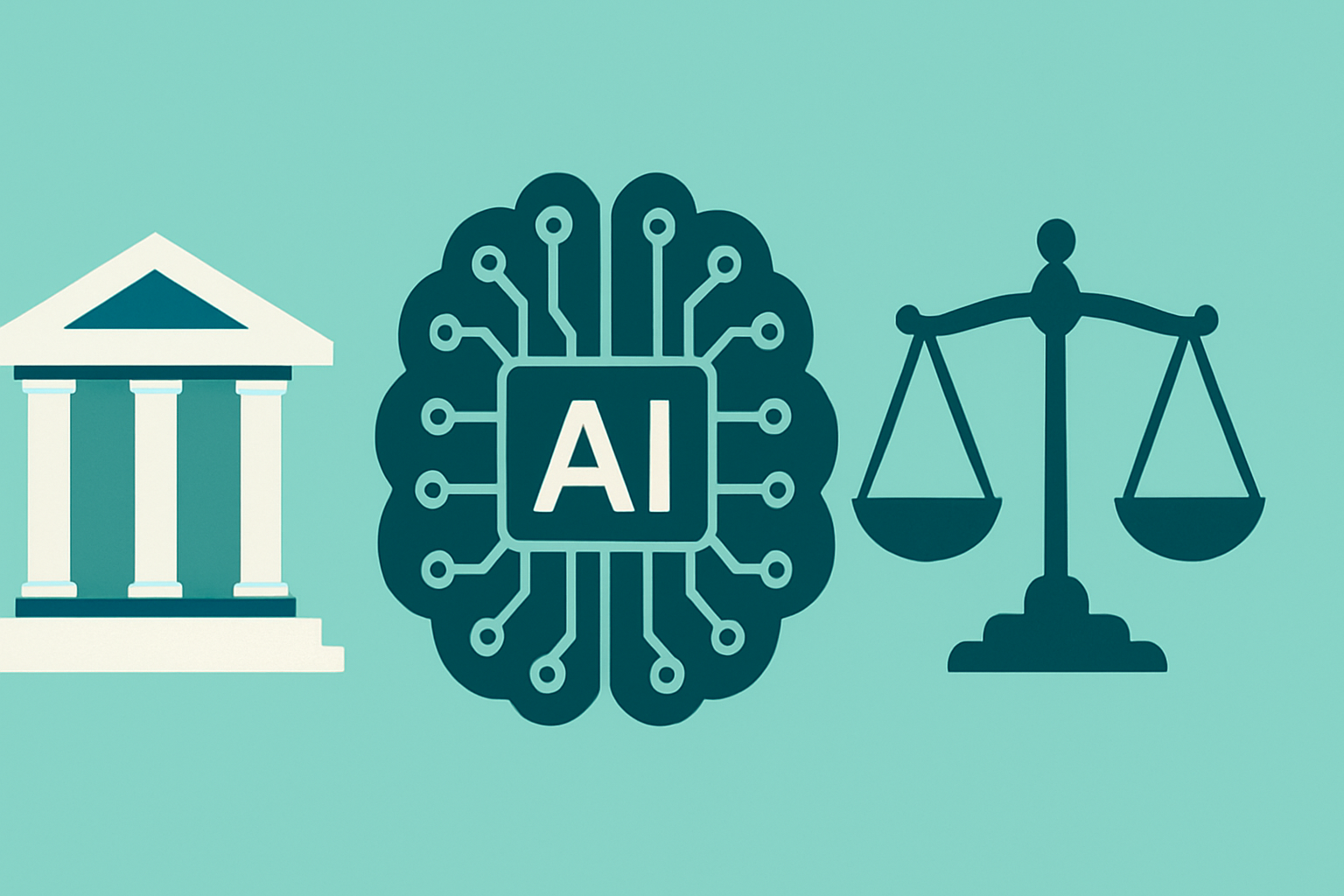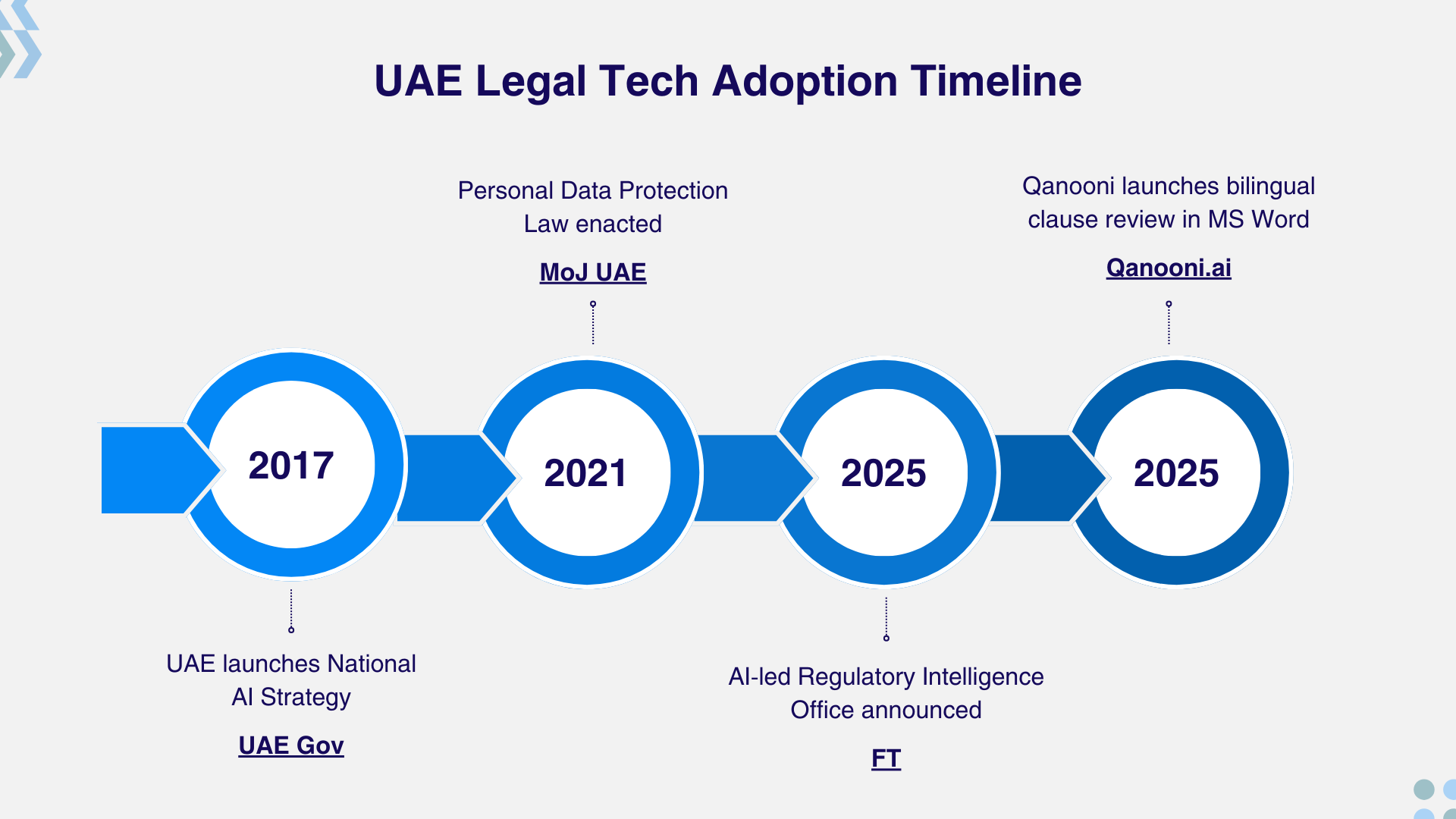
How Law Firms in the UAE Are Using AI to Save Time
Legal AI is gaining ground in the UAE. With increasing pressure on law firms to deliver faster results across complex, bilingual matters, firms across Dubai, Abu Dhabi, and the DIFC are turning to artificial intelligence to streamline drafting, research, and review workflows.
From contract automation to jurisdiction-specific clause review, AI is saving lawyers hours per matter—without replacing professional judgment.
The Rise of Legal Tech in the UAE: A Market-Driven Shift
The UAE has positioned itself as a leader in AI-enabled governance. In 2025, it launched the Regulatory Intelligence Office, tasked with using AI to draft and revise laws. This initiative is expected to accelerate lawmaking by up to 70% and marks the first national-level use of AI in legislative development.
Legal AI is following a similar path in private practice. Tools like Qanooni are helping firms draft documents, review contracts, and search UAE-specific legal material in both English and Arabic.
This is supported by a clear regulatory framework:
- Federal Decree-Law No. 45 of 2021 on Personal Data Protection
- UAE National AI Strategy
- AI Ethics Guidelines ensuring responsible use
Structured Legal Tech Adoption Timeline

Sources: UAE Gov, MoJ UAE, FT, Qanooni.ai
How Law Firms Are Using AI in the UAE
Contract Review in English and Arabic
Lawyers use Qanooni to run bilingual clause-by-clause reviews directly within Microsoft Word. The system flags risky language, suggests firm-approved alternatives, and applies bilingual formatting standards. Turnaround time is cut by more than half.
Jurisdiction-Specific Drafting
Qanooni adapts to DIFC, ADGM, or onshore UAE law frameworks. It pulls in relevant clauses from your firm's historical precedents, matches tone and structure, and ensures formatting compliance.
Fast, Accurate Legal Research
AI tools now surface local legislation, precedent, and commentary faster than traditional databases—especially useful when dealing with UAE ministerial resolutions, bilingual statutes, or regulatory filings.
What Kind of Impact Are UAE Firms Seeing?
| Task | Time Saved | Accuracy Uplift |
|---|---|---|
| Contract Review | 60–80% faster | +23% clause-level accuracy |
| Drafting from Precedents | 50–70% faster | Preserves tone + structure |
| Legal Research | 40–60% faster | Tailored to jurisdiction |
These efficiency gains allow firms to handle more matters, meet client SLAs, and reduce non-billable time—without hiring more headcount.
Try Qanooni — Built for the UAE. Embedded in Microsoft 365.
Qanooni is the only legal AI platform embedded inside Microsoft 365 and tailored for the UAE.
- Contract review in Arabic and English
- Clause benchmarking tied to UAE legal frameworks
- AI-powered research for DIFC, ADGM, and federal law
- Matter history tracking via Outlook integration
How to Get Started with Legal AI in the UAE
- Upload firm precedents and clause banks
- Run contract reviews with Qanooni's embedded Microsoft Word plugin
- Customise playbooks and clause libraries
- Use the platform's research and drafting tools by jurisdiction
- Validate AI output—retain human sign-off and quality control
AI doesn't replace lawyers. It lets them do more, faster.
Frequently Asked Questions
Can lawyers in Dubai use AI for drafting contracts?
Yes. The UAE permits AI use in legal services, as long as human lawyers maintain control and outputs comply with local data laws.
Is AI allowed for legal research in Abu Dhabi?
Yes. Legal research tools that aggregate, summarize, or analyze UAE legal sources are permitted, provided they follow privacy and security standards.
Does Qanooni support English and Arabic drafting?
Yes. Qanooni works seamlessly across both languages, detecting and suggesting clause improvements in bilingual workflows.
Is Qanooni compliant with DIFC and ADGM regulations?
Yes. It is trained on common law and civil law clause structures and adapts output formatting to meet jurisdiction-specific norms.